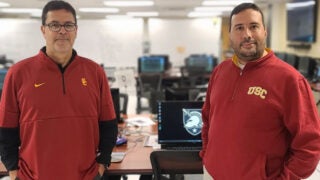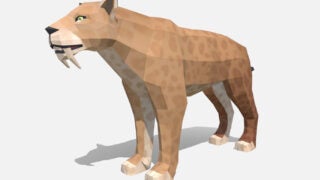USC Dornsife faculty are using VR and AR to provide unprecedented, close-up interaction with the past.
Virtual Reality
News Listing
USC researchers are scanning patients’ brains after they catch waves — and constructing a virtual reality surfing experience.
Victor Castro and Richard DiNinni are creating educational programs at West Point that blend VR and game-based training technologies with research-based concepts.
When USC’s Information Sciences Institute launched in 1972, the video game, pocket calculator and floppy disk were new and the internet as we know it did not exist. What will the next 50 years bring?
Rylan Pozniak Daniels of the USC Iovine and Young Academy is using augmented and virtual reality make astronauts’ work easier.
The team of USC and Arizona students was one of 10 selected to design an AR interface for lunar and Martian exploration.
Researchers create new augmented reality paleoart to shed light on the extinct species of the region. Learn how you can “see” these animals up close.
Playbook VR would allow anyone to build virtual reality experiences, without requiring coding or other background knowledge.
Professor Skip Rizzo’s 89-year-old mother test-drives his innovations.
Think caribou in the arctic tundra have nothing to do with you? USC students use immersive technology to explain their urgent message for us all.




